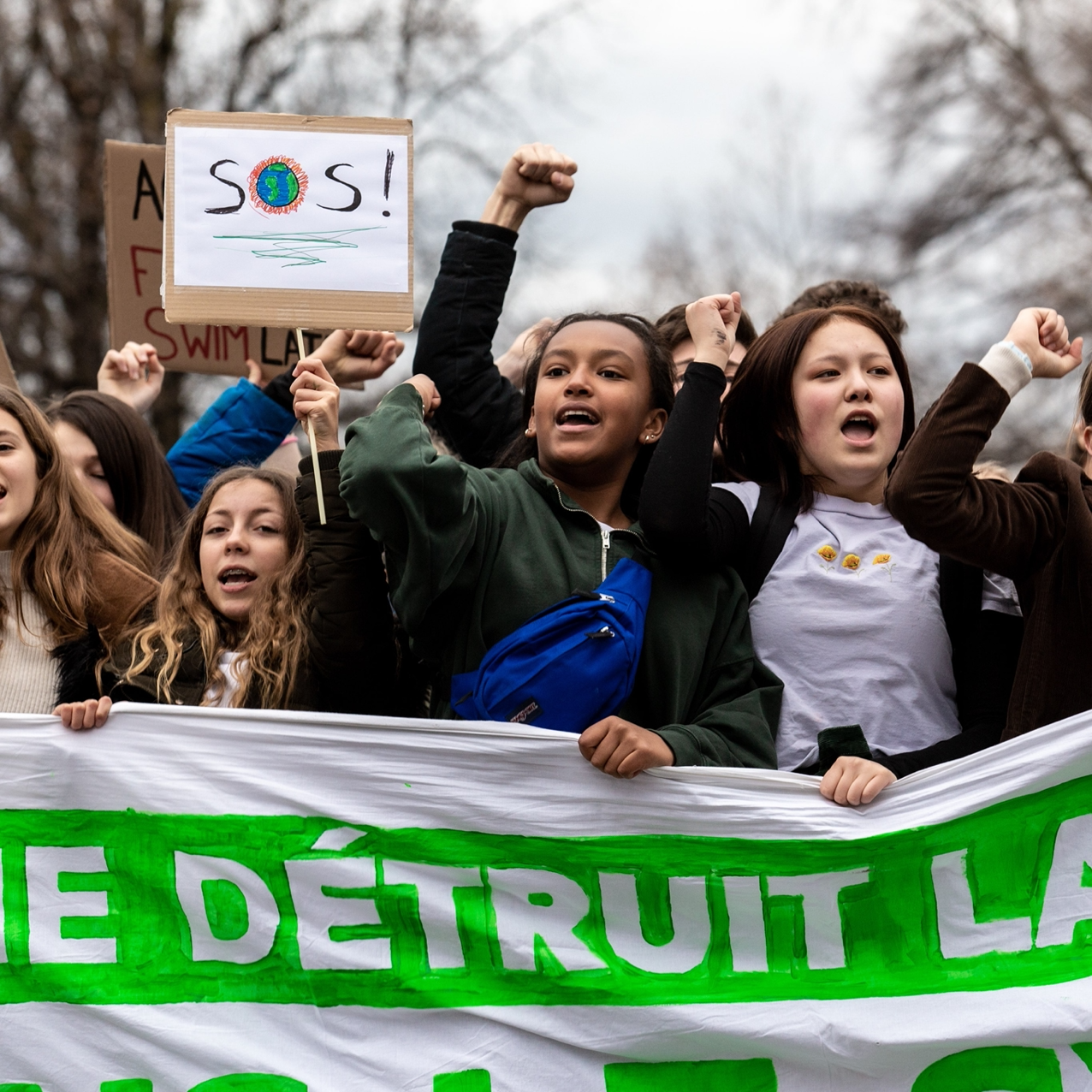After helping orchestrate the landmark Paris Agreement five years ago, Christiana Figueres explains how women are disproportionately affected by the climate crisis, and why we need to be better represented at the tables where decisions are being made.
When Christiana Figueres took up her role as the executive secretary of the United Nations Framework Convention on Climate Change (UNFCCC) in 2010, many considered achieving a global agreement on climate change a near-impossible task. But the Costa Rican diplomat managed to succeed where others had failed, with the historic Paris Agreement — a commitment to keep global warming well below 2C and pursue efforts to keep temperature rises below 1.5C — signed by 197 countries on 12 December 2015.
Read more: What Is “Climate Grief”?
Since leaving the UN, Figueres has continued to be one of the leading female voices of the climate movement, co-founding Global Optimism, an organisation working to inspire action on the environmental crisis. She also co-wrote The Future We Choose (Manilla Press, 2020), a book that presents a hopeful vision of the world we must create in order to survive the climate crisis.
Here, Figueres explains why women are crucial to the climate movement and how we can all play our part.
“We know that women in developing countries are disproportionately affected by climate change because women in those countries are traditionally entrusted with growing the food their families need, gathering firewood and getting water. The availability of food and water are directly impacted because of climate change, which is causing increasing numbers and severity of droughts. On a practical level, this means women are having to walk further to get water as well as firewood, making their days longer, and leaving their children and homes to do so. The traditional roles that women have in developing countries are getting increasingly difficult because of climate change.
“That’s why it’s so important that female voices are at the decision tables when it comes to the climate crisis. Currently, there are just not enough women in decision-making positions, thinking about the different ways that climate change is gender-specific, and making more inclusive decisions.
“When I took over as executive secretary of the UNFCCC in 2010, I made it a point to work with women such as [former global senior gender advisor of the International Union for the Conservation of Nature] Lorena Aguilar, [former president of Ireland] Mary Robinson and many others to get more recognition of the disproportionate impacts of the climate crisis on women, as well as the role that women play in both decision-making and solution-bringing. The importance of promoting gender equality was eventually included in the Paris Agreement as well — I’m truly grateful to all those women who worked to bring that about.
“At the UN, we also had specific initiatives to improve representation, for example requesting that governments include women in their negotiating teams. In my six years as head of the UNFCCC, I saw an increase in female representation, which was very healthy. It’s still far from 50/50, but certainly better. I’ve also noticed that there are a lot of women dedicating themselves to sustainability, including in areas such as biodiversity, conservation and food production.
“It’s delightful to be able to work with women who are tackling the climate crisis from different perspectives — some of them as artists, authors, political leaders, engineers, negotiators. It’s great to see women spread through all the different parts of the climate movement. Having different points of view, collective wisdom and leadership are absolutely fundamental to addressing climate change. This has to be about radical collaboration.
“It’s often women who determine what is purchased, how much is purchased and what people eat in their families, so there is a lot of behaviour that is being influenced by women. If women are more aware of the climate implications, they can make wiser decisions and avoid those products that cause high greenhouse-gas emissions. For example, beginning to diminish the amount of red meat we eat and moving over to plant-based protein is important. There are 16 steps identified by a new initiative called Count Us In that can help people take steps that matter to cut their personal carbon footprints.
“It’s about recognising that everyone can contribute. Each one of us will not win this battle individually — it will require all of us playing our role wherever we can.”
As told to Emily Chan.
The Future We Choose (Manilla Press, 2020), by Christiana Figueres and Tom Rivett-Carnac, is out now




